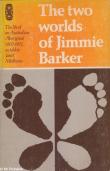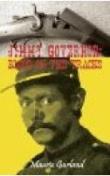 4904456200761813985.jpg
4904456200761813985.jpg
Image courtesy of publisher's website.
y
 The Two Worlds of Jimmie Barker : The Life of an Australian Aboriginal, 1900-1972 : As Told to Janet Mathews.
single work
The Two Worlds of Jimmie Barker : The Life of an Australian Aboriginal, 1900-1972 : As Told to Janet Mathews.
single work
 The Two Worlds of Jimmie Barker : The Life of an Australian Aboriginal, 1900-1972 : As Told to Janet Mathews.
single work
The Two Worlds of Jimmie Barker : The Life of an Australian Aboriginal, 1900-1972 : As Told to Janet Mathews.
single work
Alternative title:
The Two Worlds of Jimmie Barker : The Life of an Australian Aboriginal, 1900-1972
Issue Details:
First known date:
1977...
1977
The Two Worlds of Jimmie Barker : The Life of an Australian Aboriginal, 1900-1972 : As Told to Janet Mathews.


